Department of Earth Science and Engineering wins Bronze Athena Swan award
by Nicky Jenner

Imperial's Department of Earth Science and Engineering (ESE) has been commended for its work to transform gender equality by the Athena Swan Charter.
ESE has been conferred a Bronze award, highlighting its efforts to address unequal gender representation in academia and higher education. ESE's actions span a number of overarching focus areas:
- Empowering women to study and work;
- Supporting students and staff;
- Prioritising gender equality in recruitment and outreach;
- Developing departmental culture and ongoing learning;
- Responding to COVID-19; and
- Considering longer-term goals for future progress.
Empowering women to study and work
The Bronze award recognises how ESE prioritises equality, diversity and inclusion (EDI) and has cemented this at the heart of departmental culture and values, both improving existing initiatives and processes and implementing new ones.
ESE aims to increase the number of women entering and remaining in the department, and to create an environment in which women feel supported and empowered to study and work. As part of these efforts, the department has a dedicated Athena Swan Self Assessment Team and an Equality, Diversity, Inclusion and Culture (EDIC) Committee, to encourage department-wide engagement in EDI and support action to improve things even further.
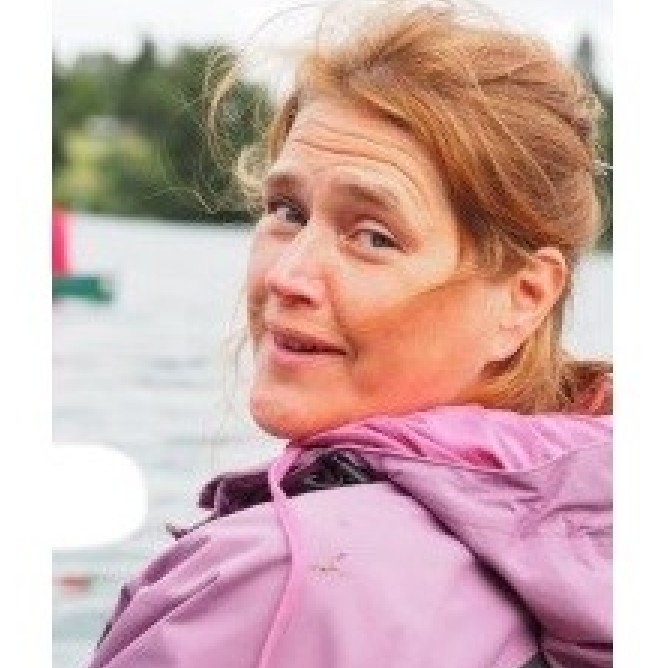
Dr Katharina Kreissig, Co-Chair of the ESE Athena Swan Self Assessment Team and Laboratory Manager for the MAGIC research group, said: "The award recognises a number of forward-thinking initiatives and efforts within the department, both new and ongoing. We are thrilled that our activities and commitment to supporting women have been recognised and conferred Bronze status."
Supporting students and staff
ESE prioritises support of students and staff above all else, from undergraduates, postgraduates, professors, researchers and academics to professional, technical and operational services.
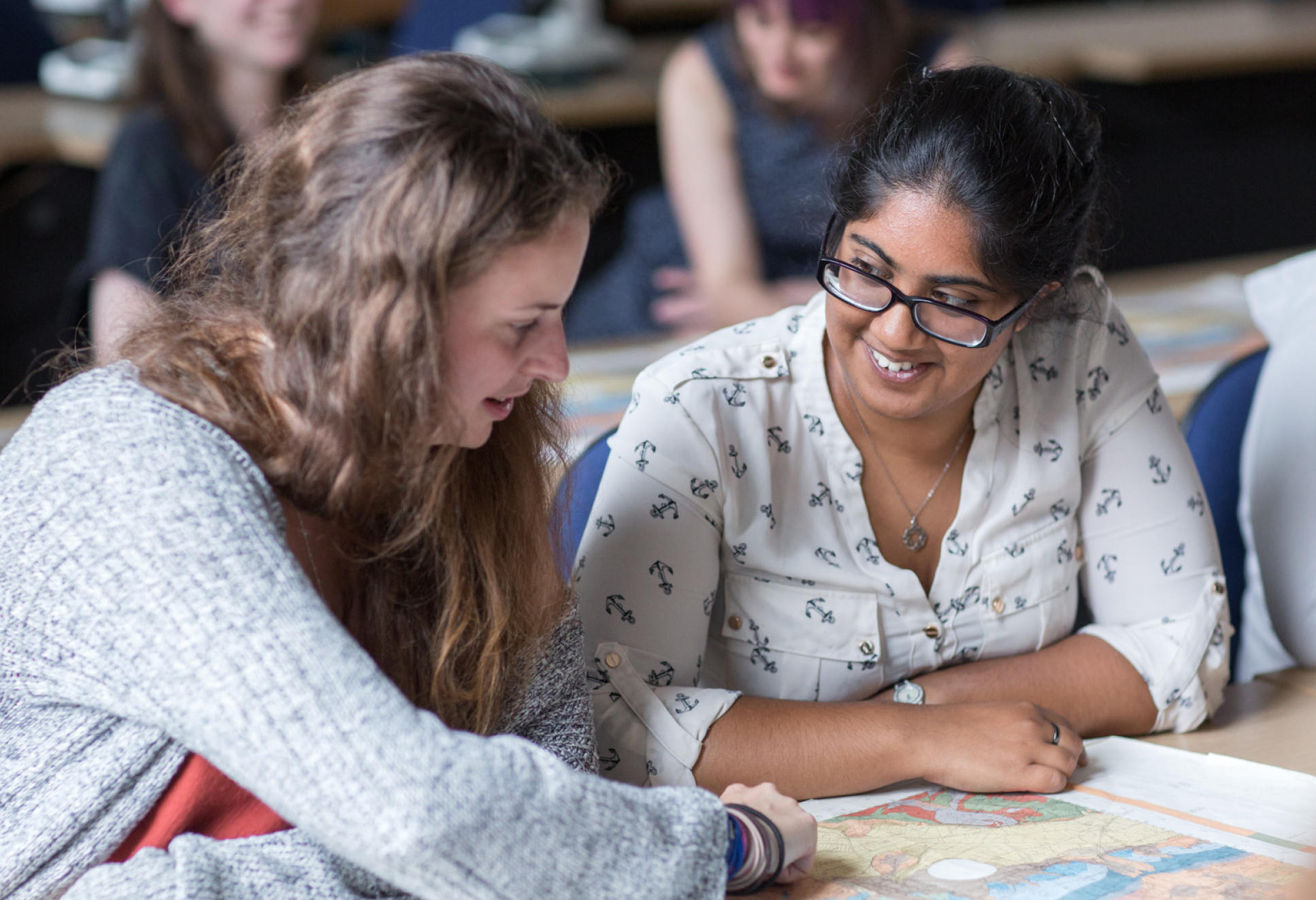
The department offers flexible working for those with caring and parental responsibilities, including providing support to transition from part- to full-time after career breaks, and holds meetings in core working hours to accommodate differing schedules. Women are supported throughout their career development via training, reviews and appraisals, support for grant applications, and more, with additional support for maternity, adoption or shared parental leave.
ESE has introduced a tranquillity room for those needing to breastfeed or take a quiet moment – for mental health reasons, for example – and provides free menstrual products in restrooms, with changes of clothes readily available if needed. Staff strive to include one female leader on all student fieldtrips, to help alleviate anxiety for female students.
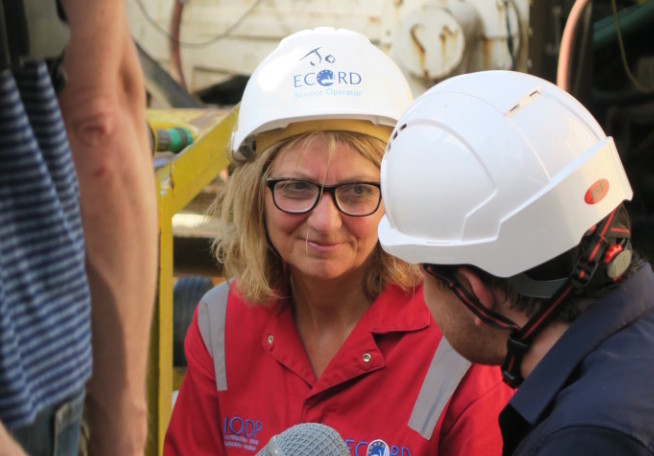
Professor Joanna Morgan, Professor of Geophysics in ESE and Chair of the ESE EDIC Committee, said: "These, and other, activities come together to create a supportive environment of respect and dignity, with women being supported from the undergraduate level up to the Head of Department. This is something we’re focusing on at all levels in ESE."
Prioritising gender equality in recruitment and outreach
Alongside supporting the women currently within the department, ESE pushes to support women in STEMM more generally, and to implement fair, gender-balanced recruitment and outreach procedures.
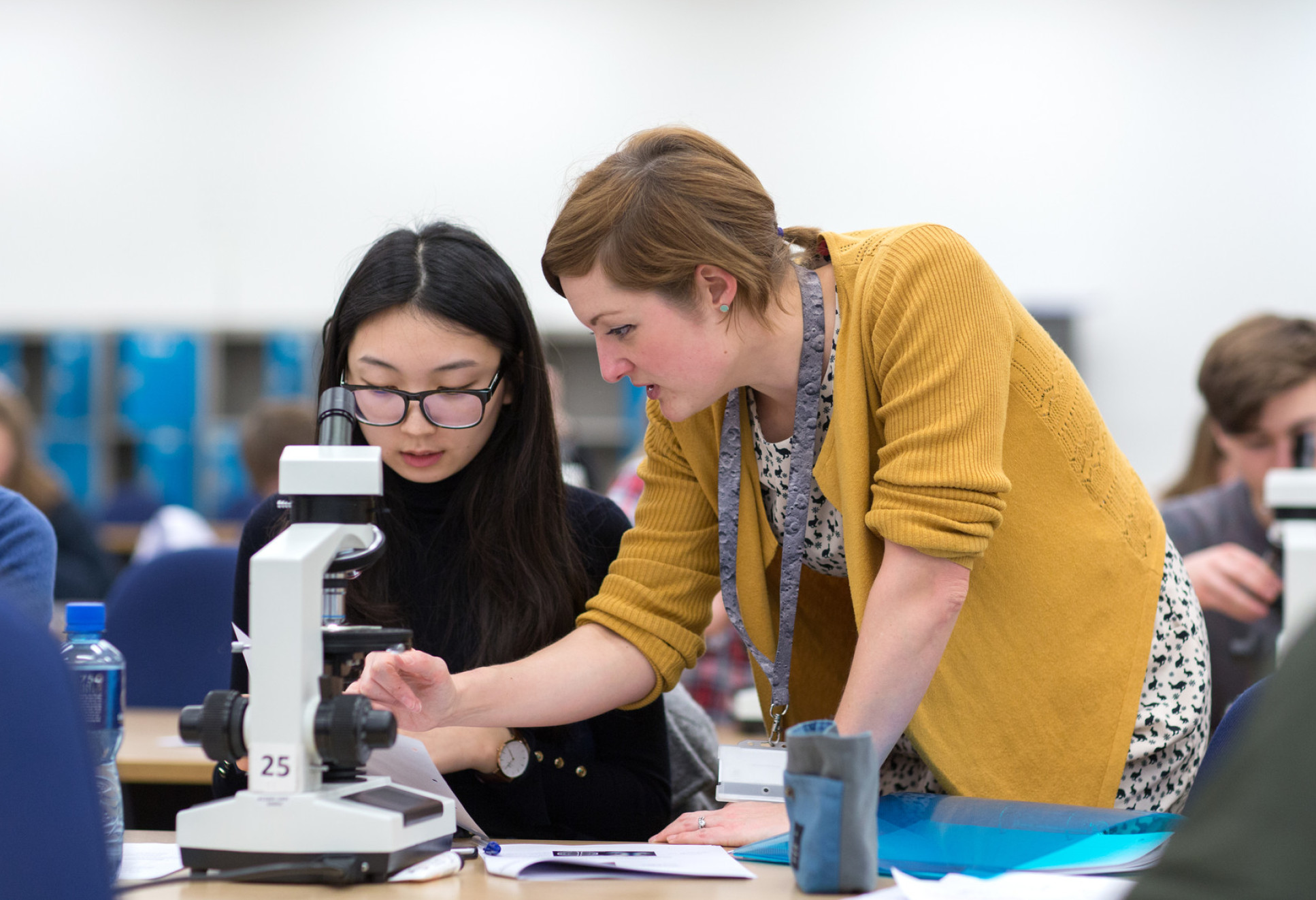 The department has sought collaboration and support for scholarships specifically aimed at women, to offer funding opportunities for prospective female students across all of our MSc courses; these opportunities have arisen from departmental funding and partnerships with Women in Mining UK, the Bank of Montreal, and the British Council STEM Scholarships for women.
The department has sought collaboration and support for scholarships specifically aimed at women, to offer funding opportunities for prospective female students across all of our MSc courses; these opportunities have arisen from departmental funding and partnerships with Women in Mining UK, the Bank of Montreal, and the British Council STEM Scholarships for women.
"We have an explicit focus on the ‘leaky pipeline’ – a key aspect of why women become underrepresented minorities in STEMM." Dr Rebecca Bell ESE
ESE has a dedicated annual EDI budget, which is used to highlight events such as International Women’s Day, Women in Engineering Day, and Women at Imperial Week, and to fund EDI workshops. This feeds into our commitment to highlight the contributions of women in STEMM – something also achieved via the Watson Forum, an initiative driven by ESE’s Dr Adriana Paluszny that aims to increase the impact of the work of women in simulation (in both industry and academia), encourage others to pursue such careers, and provide visible female role models to young women.
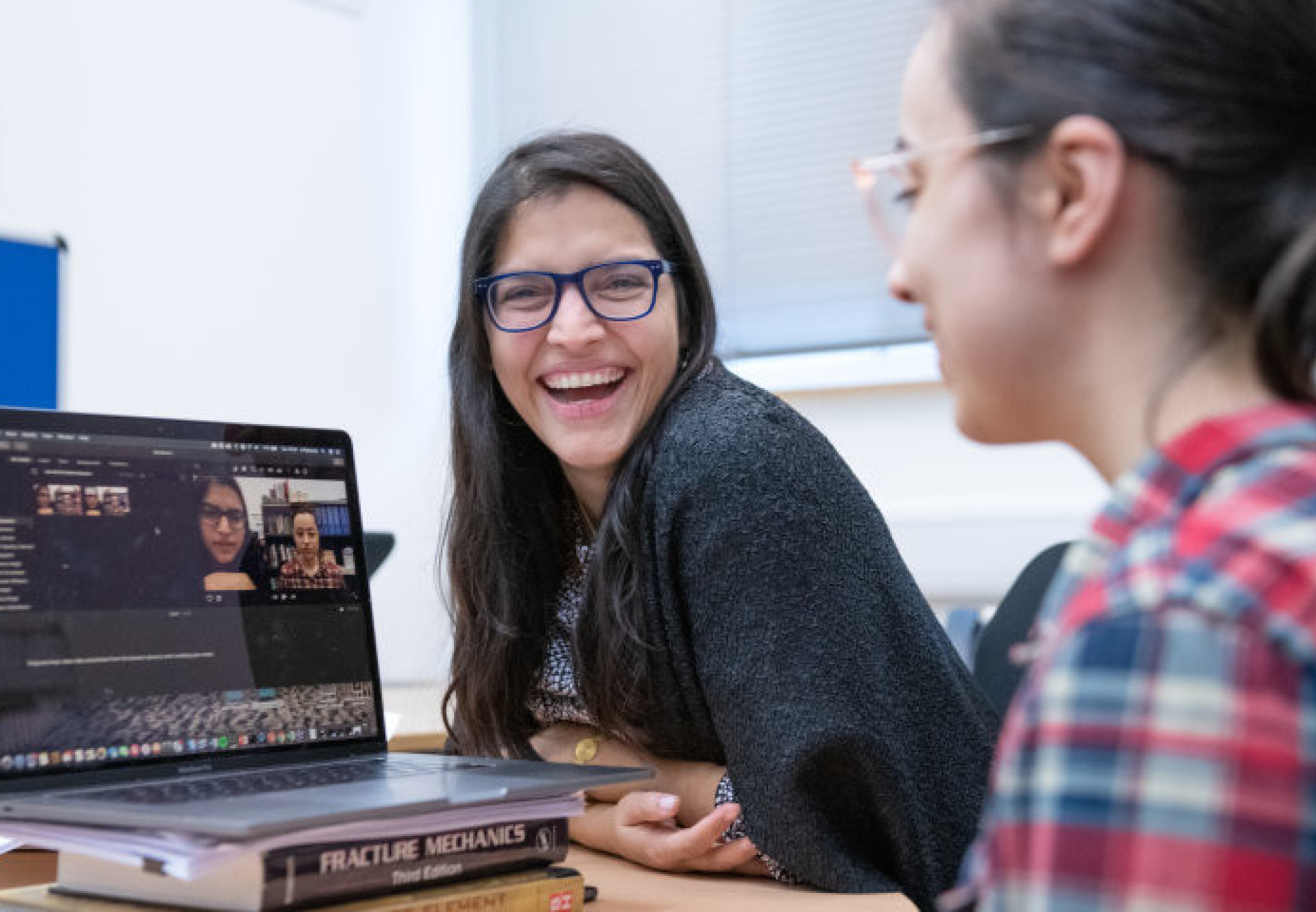
ESE's recruitment processes seek to remove gender-coded language in job advertisements, to provide gender-balanced interview and shortlist panels, and to offer recruitment events that accommodate caring responsibilities. Our outreach, marketing and careers activities strive to feature and forefront an equal mix of genders, with external speakers asked to include a slide on EDI and gender diversity and encouraged to select a gender-balanced variety of representatives.
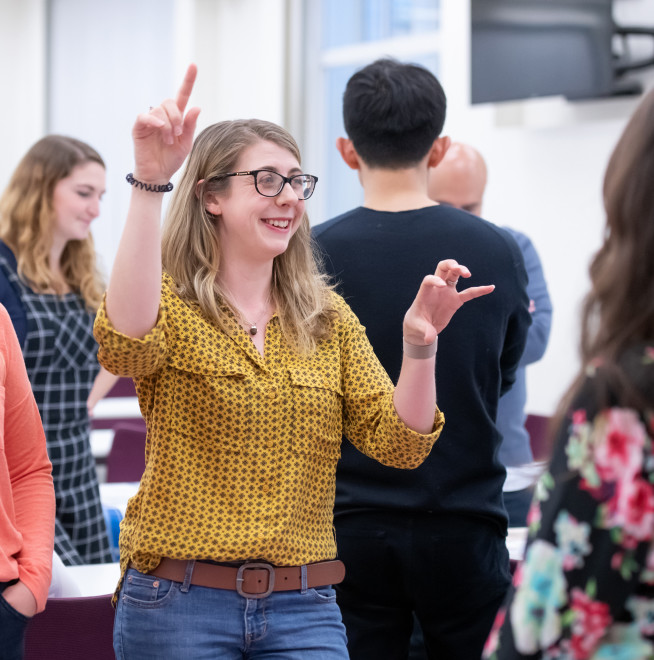
Dr Rebecca Bell, Senior Lecturer in ESE, led the development of the Bronze application as Chair of the ESE Athena Swan team before taking maternity leave. She said: “In tandem with our efforts to support staff and students within the department, we have an explicit focus on and awareness of the ‘leaky pipeline’ – a key aspect of why women become underrepresented minorities in STEMM.
"We aim to increase recruitment of women into academic positions, and support the recruitment, induction, promotion and career development of women. We also strongly encourage female staff to sit on internal and external committees, as is needed in order for women to play a central, influential and representative role in decision-making.
"However, we are also acutely aware that, currently, if we aim to achieve gender balance on committees, we will be putting a greater administrative load on the smaller number of women academics. Ultimately our goal is to improve gender balance in all areas of ESE, and this is something we’ll continue to work towards in coming years."
Developing department culture and ongoing learning
In 2019, ESE formally defined its six core values, with engagement and input from across the department:
Supportive | Excellence | Integrity | Innovative | Inclusive | Inspiring
In support of these values, ESE added additional mandatory training sessions for staff in 2020 – the department has run EDI development workshops since 2014. Overall, all members of the department must complete (and regularly revisit) training on ESE Values, Promoting Equality and Diversity, Unconscious Bias, Racism Awareness, Active Bystander, and Bullying and Harassment.
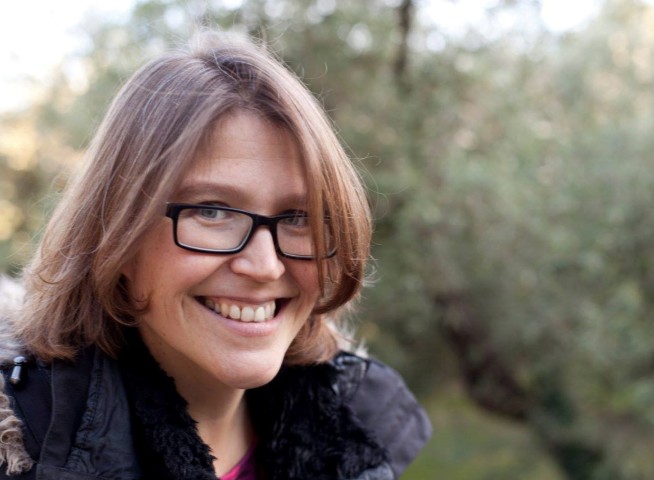
ESE also ran a recent series of interactive workshops on menopause – ‘Menopause 101’ – highlighting the importance of recognising women’s health and creating an open, supportive and empowering environment for discussion and support. ESE’s Department Operations Manager, Dr Emma Watson, was recognised for her proposal and development of these workshops and advocacy of women in the workplace by the 2021 Imperial College Julia Higgins Medal and Awards.
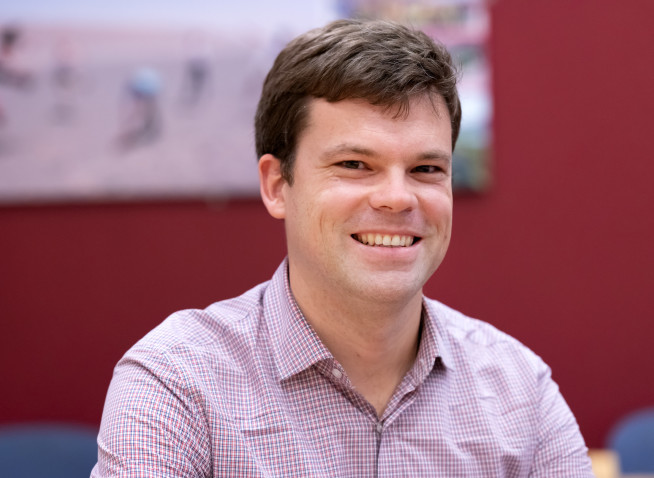
Dr Sam Krevor, Reader in ESE and Co-Chair of the ESE Athena Swan team at the time of application submission, said: "To make sure that we’re always building upon past successes, we also run an annual Athena Swan staff survey to investigate how gender equality perceptions may have changed in the past year, and better identify ongoing gender issues. It’s an important aspect of our efforts, to ensure we’re continually pushing to improve."
Responding to COVID-19
ESE continued to prioritise gender equality in its response to the COVID-19 pandemic, which saw all staff and students move to working and studying from home, and placed additional stress on carers (disproportionately female).
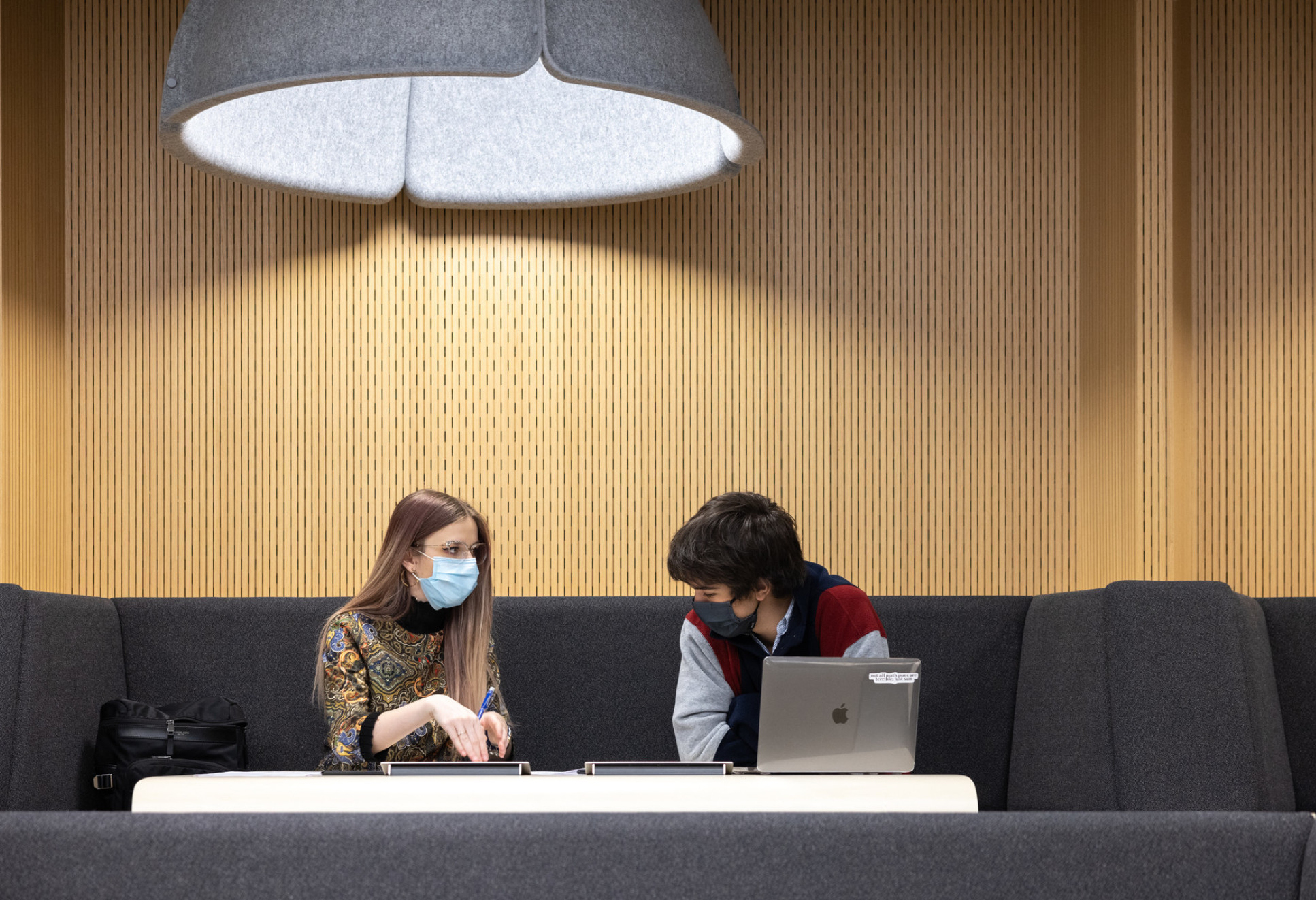
ESE has sustained regular communication to ensure carers are not overburdened and remain connected with the department – for example, via the weekly ‘ESE Update’, established during the initial lockdown. The department has reiterated its commitment to flexible working and supporting mental, physical and occupational health, providing regular computer health assessments and encouragement to take regular screen breaks.
Both the College and Department have also supported undergraduate studies via the ESE Remote Classroom online learning platform; by providing hardship funds and necessary equipment; by offering wellbeing support (including recruiting a new Wellbeing Advisor); and by hosting regular staff-student consultation meetings where student representatives can provide feedback.
Looking to the future of ESE
The Athena Swan Bronze award is an exciting recognition of ESE’s gender equality goals. The department aspires to an equal gender balance in the department in all areas and at all levels, to plug the ‘leaky pipeline’ and support more women into research and academia, to ensure a positive environment for all women in ESE, and to raise the profile of women in ESE as role models – overall, to increase appreciation of gender equality in all communities.
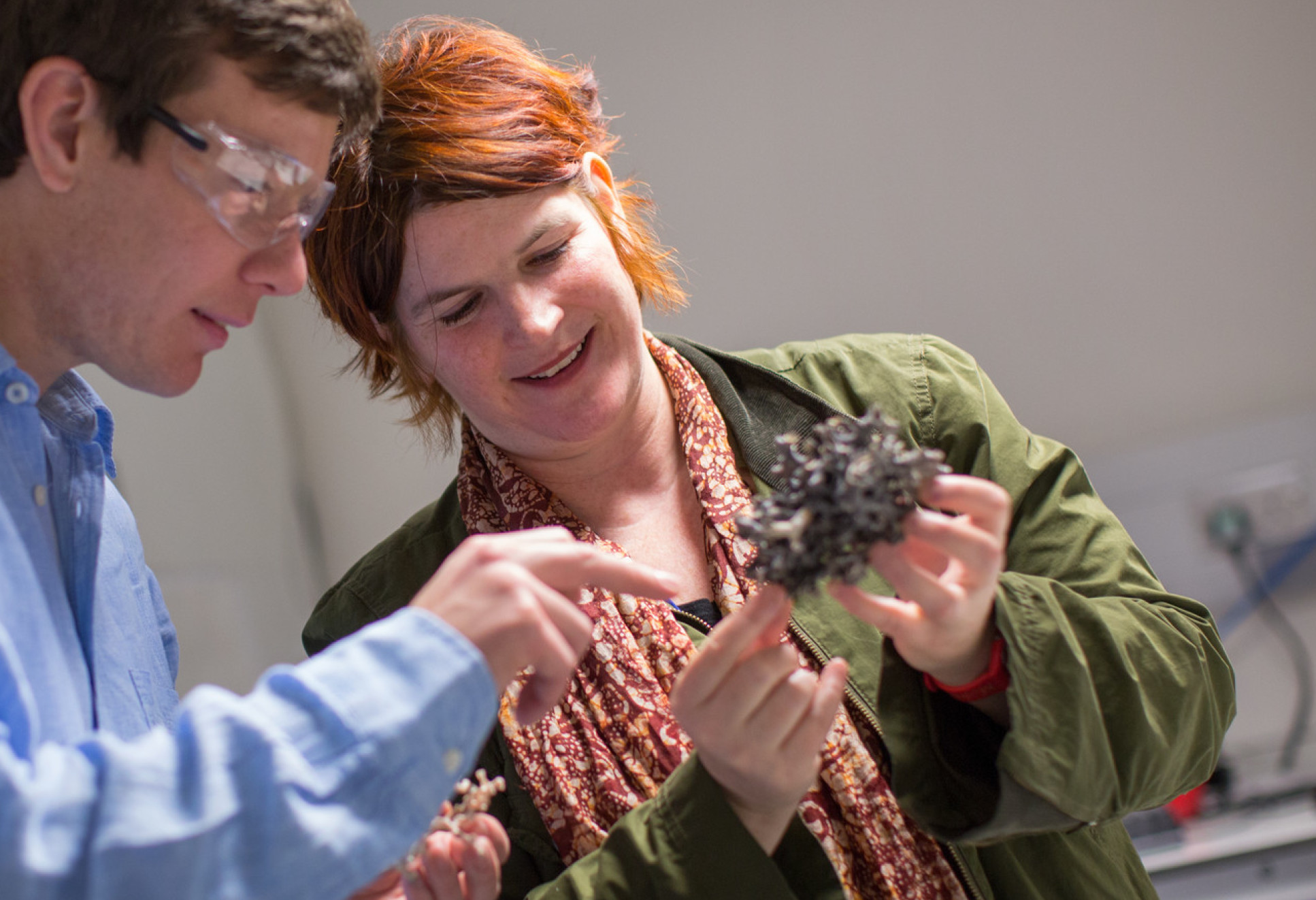
Professor Tina van de Flierdt, Head of the Department of Earth Science and Engineering, said: "We aim to create a supportive, inclusive and flexible working environment for all staff and students as a priority. Our Bronze status builds on the incredible and sustained efforts of my predecessor, Professor Mark Sephton, and I am truly appreciative of his drive to support and improve gender equality in ESE.
"It is hugely important to me – both on a personal level and as representative of ESE as Head of Department – that everyone in our community feels equally valued, respected, and supported. Bronze status highlights the success of our efforts so far, and we will continue to improve and support women in the department however, whenever and wherever we can."
Article text (excluding photos or graphics) © Imperial College London.
Photos and graphics subject to third party copyright used with permission or © Imperial College London.
Reporter
Nicky Jenner
Department of Earth Science & Engineering